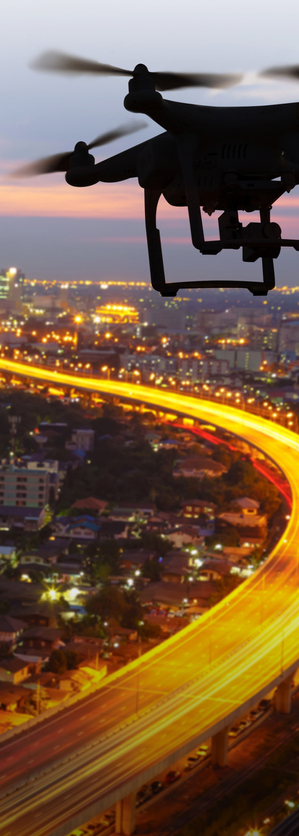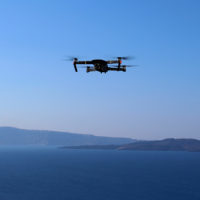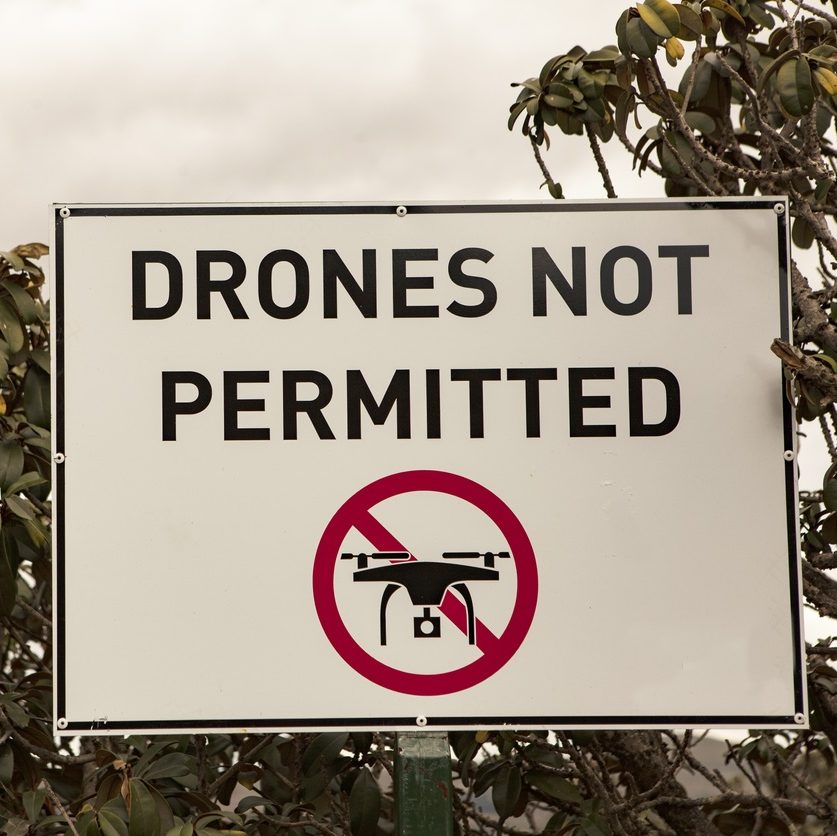
Florida Law Catches Up to Stalking Drones
By James Michael Shaw , Jr., Ryan Hilton | Blog Posts
October 7, 2022
The Western District of Kentucky recently granted a motion to dismiss for lack of subject matter jurisdiction, determining that there is no federal question jurisdiction when a claim is brought for trespass to chattels and declaratory judgment where a drone is flown above an individual’s property.
Generally, aircraft flying above a certain altitude enjoy a qualified immunity because of a line of cases starting with United States v. Causby in 1946. The Causby case was the first to determine that repetitive, low flights over a residence constituted a compensable taking, and many cases since have further defined at what altitude a residence owner’s property rights end and federal airspace begins. The issue has not been addressed in the drone context as of yet, partially because drones fly too low to the ground and because disputes often involve private individuals instead of the government. The recent Kentucky case is the first glimpse of how courts may evaluate airspace relating to drone flights.
In Boggs v. Merideth, No. 3:16-CV-00006 (2017), Boggs brought suit seeking a declaratory judgment and money damages for damage to his drone after Merideth shot it out of the sky with a shotgun. Boggs’ declaratory action asked the Court to determine that: “(1) an unmanned aircraft is an ‘aircraft’ under federal law; (2) an unmanned aircraft operating in Class G airspace is operating in ‘navigable airspace’ within the exclusive jurisdiction of the United States; (3) Boggs was operating his unmanned aircraft in this navigable airspace in the exclusive jurisdiction of the United States, rather than on Merideth’s property; (4) the operating of his unmanned aircraft in this manner did not violate Merideth’s reasonable expectation of privacy; and (5) a property owner cannot shoot at an unmanned aircraft operating in navigable airspace within the exclusive jurisdiction of the United States when operating in the manner in which Boggs alleges his unmanned aircraft was operating.” Boggs claim for money damages was brought under Kentucky tort law for trespass to chattels.
Merideth argued that Boggs’ declaratory claim simply anticipated defenses for trespass to chattels. The Court agreed, finding that defenses alone are not sufficient to bring a claim under federal question jurisdiction, and the complaint on its face did not raise a federal question. Under Kentucky law, privilege is a defense to trespass to chattels, and whether Boggs was operating his drone in airspace or on Merideth’s property would be used to establish privilege.
The Court went on to determine that this case was not one where jurisdiction would exist for state claims that implicate significant federal issues. The Court noted that whether the drone was on Merideth’s property or in federal airspace would not be dispositive of the trespass to chattels claim, and thus was not necessary to the claim. Further, the Court found that the federal issue raised was not substantial or “significant to the federal system as a whole.” Because the FAA was not involved in this case, the FAA’s interest in regulating air safety and navigation would not be affected by the outcome of a case between two individuals over damage to property. The Court also rejected the argument that the FAA’s increase in the regulations of unmanned aircraft indicates that federal courts should resolve these issues, finding instead that any such regulations are not at issue in this case, and, even if they were, they would only be ancillary issues.
Finally, the Court reviewed whether it had any independent authority to exercise jurisdiction over the declaratory judgment claim. The Court said “no,” reasoning that the Declaratory Judgment Act does not provide a private right of action, and Boggs’ trespass to chattel claim did not support federal question jurisdiction. The Court noted that the only other claim available would be an invasion of privacy, also under Kentucky’s tort law, so the same analysis would apply.
This is the first case implicating property rights to airspace over dwellings in drone flights, but the battle between the state’s use of its police power to regulate and control drone flights and federal preemption of aviation is far from over. For now, it is for states to decide the scope of an unmanned aircraft system or drone privileges that are not regulated by the FAA both in the legislature and in court. Indeed, many states have passed or are considering regulations on drone flight, including minimum distances from dwellings.

By James Michael Shaw , Jr., Ryan Hilton | Blog Posts
October 7, 2022


By Ryan Hilton | Blog Posts
January 26, 2021

